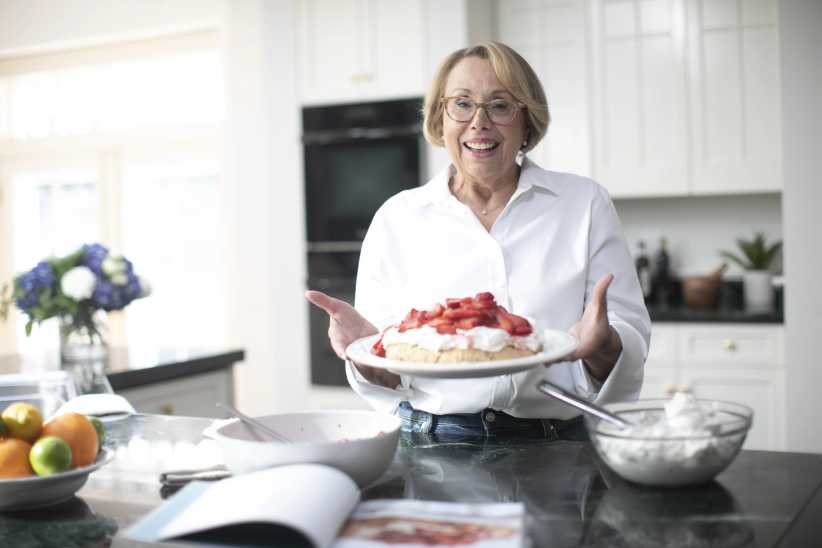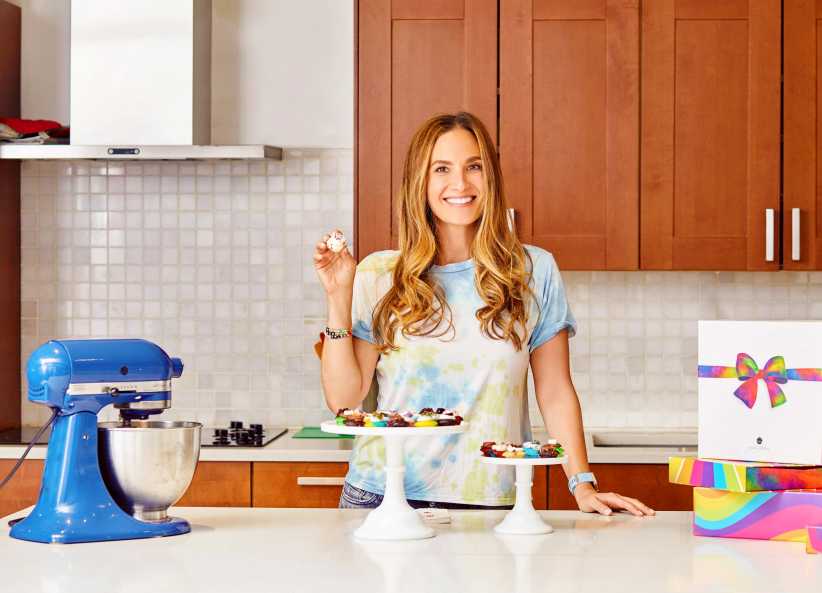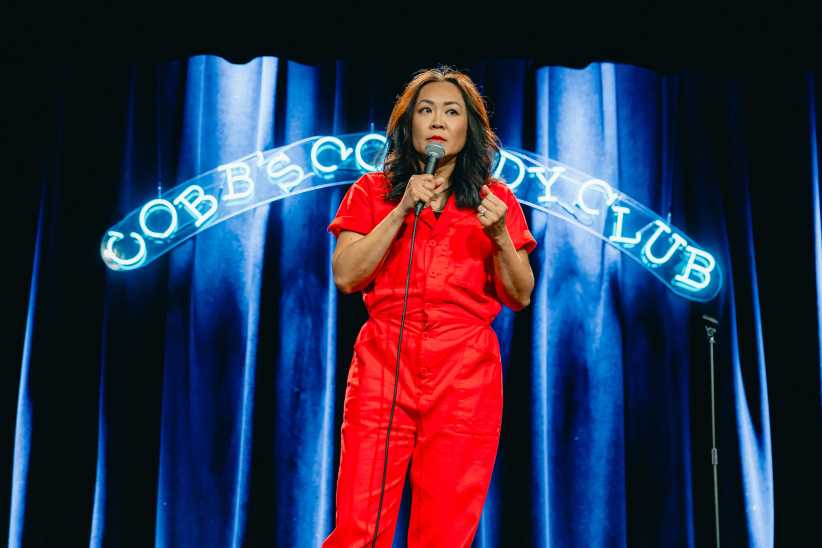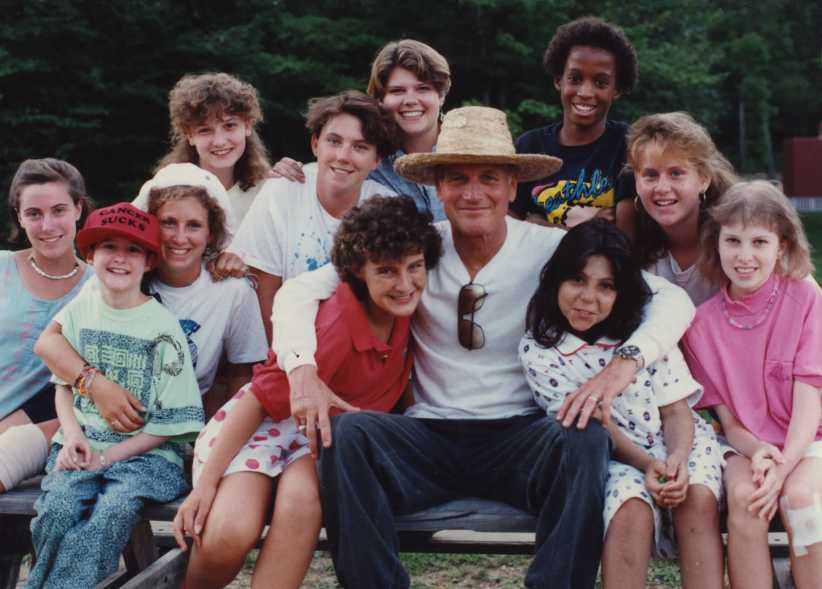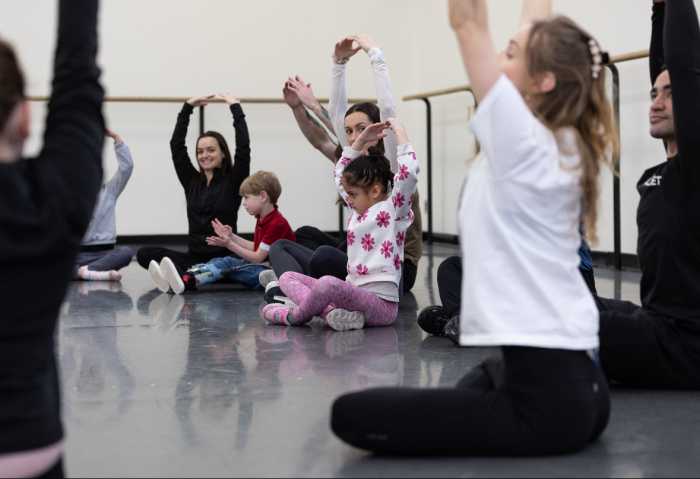Meeting Spike and Tonya Lee at their home on the East
Side, I had a few modest goals. I didn’t want to be the 10,000th
interviewer who tried (and failed) to ingratiate himself with Spike by making small
talk about the Knicks. (Truth be told, I interviewed Spike once before, about
12 years ago, for The New York Times Magazine, and I’m sure I
probably did try to talk about the Knicks at the time.) Nor did I want to talk
that much about his filmmaking career, since I probably wasn’t going to bring
any new insights to that awesome body of work. The fresh opportunity, I
thought, was to talk to Spike and Tonya as parents of two children, Satchel, 16
and Jackson, 13, and to politely steer
the conversation towards Tonya since her background and voice is less familiar.
The good news is they seemed to be on the same page!
Giant Steps To Change The World—what a great idea for a children’s
book. How did it all come about?
Tonya: The editor I worked with on our other children’s
books had been talking to me about trying to do something around historical
figures. I love history and I loved the idea of making history interesting and
relevant to kids.
To give people a
sense of the book and your thinking, would each of you talk about one figure in
it of special meaning or importance to you?
Spike: Jean-Michel
Basquiat was one. The point being that here is this kid from Brooklyn
who went on to become this amazing painter. Paint your own portrait, don’t be
limited.
Tonya: For me, it
was Dr. Ben Carson [one of the great innovators in pediatric neurosurgery],
somebody who I just revere. First of all, he has saved so many lives. He also has
a very inspiring personal story. As a young kid, teachers basically told him he
was stupid, but he dug down deep and fulfilled his dream of being a doctor. There
are a lot of families today who are very grateful he did not listen to some of
his teachers.

Your first two
children’s books—Please, Baby, Please
and Please, Puppy, Please are
adorable, and you’ve spoken in past interviews about how the books were
inspired, in part, by your own experiences as parents. Your kids are a little older
now—how are the teenage years going?
Tonya: The teenage years are definitely an interesting time.
But are kids are great, they even still like to come and cuddle now and then,
walk hand in hand down the street, all that stuff.
What are some of the
joys and challenges of being their parents right now? At 16, what’s Satchel
like?
Tonya: Satchel is intense and complicated, and she’s growing
from being a girl to being a young woman. It’s a real transition time for her,
and a joy to see and watch. Helping guide her through can be a scary thing sometimes,
but it’s great.
Spike: She doesn’t listen to me though.
Tonya: She might not want to accept it, but she listens. What
I find with Satchel is that it’s always interesting to kind of let her come to
me. With kids sometimes if you go direct, you don’t get much. But when she’s
ready to come to me, she gives a lot.
I’m very honest with her about a lot of things in life. At
the end of the day, I think that she knows that we have her back no matter what—and
that means everything.
How about Jackson?
Spike: He’s a sensitive, sensitive soul. He doesn’t like
injustice. In the world, he wants everything to be fair and square and on the up.
Tonya: Yeah, he hates a cheater. He is artistic and creative
too. Both of them are. Satchel likes to sing, dance and play the guitar, write.
She likes to write screenplays. Jackson
is our family photographer. He’s a great photographer. He likes to paint too.
But he also likes to look things up and may even want to be a doctor. Who knows?
Do you two have any
set rules around spending family time together? I’m curious what the demands of filmmaking mean for family life.
Spike: You just try to make it work. It’s hard because a lot
of times you want to be home but you can’t.
From your experience,
how does celebrity impact family life?
Tonya: I say this knocking on wood, but I don’t really know
that it has impacted us that much. It’s just part of who we are, and I think
we’ve been good about keeping ourselves protected. Even doing this interview is
a little weird and intrusive to me because we don’t really talk about the kids
all that much in a public way. But all in, other than the fact that they have
met some amazing people and have such a critical eye on certain things, I don’t
know that there’s been a big impact in a negative way.
Spike: It’s the biggest when we’re outside. Just walking
around, or eating and having people come up to us. But it hasn’t been bad.
Tonya: You know, when we’re with the kids we just kind of go
into our zone. We’re really kind of normal. Even with Spike, when people do
come up in the streets, if it’s intrusive, he’ll let people know, “Hey, I’m
with my family.” And people respect that.
I love that idea of
being in your zone as a family. We all have our family zone, with its love,
quirks, dynamics and challenges. Spike, when you think about your journey as a
father, what comes to mind?
Spike: All the stuff that you didn’t want to do as a kid
that your father tells you to do? You
end up telling your kids the same thing. Always works like that. You try to
tell them, look I did this already, so just do it this way—but they never
listen. And they’re going to end up doing the same thing with their children.
It’s just keeps going.
By the way, how did
you two originally meet?
Tonya: I was practicing law in D.C. at the time, and we met
at the Congressional Black Caucus’s gala dinner.
Did he have a really
bad pick-up line?
Tonya: He did a jig, actually! And I told him I was
available.
Tonya, is it fair to
say that you made the choice to be more of the home anchor?
Tonya: That’s definitely fair. I’ve always been an ambitious
person. It was not an easy transition for me to think of myself of being a stay-at-home
mom. I always thought that I would always be out there—and am, I’ve been able
to figure out how to balance it a bit—but the day-to-day family stuff falls on
me and that’s okay. I have grown to really appreciate the opportunity to be
here with my kids and really be able to raise them, protect them and guide them
when Spike can’t be here. I’ve grown to like to cook too. I didn’t at first,
but now I feel like it’s such a privilege to be able to cook for my kids as
much as I can.
I hear you’re also
dedicated volunteer at their schools—and the president of the PTA at Jackson’s school. Did you ever think you’d be a PTA
mom?
Tonya: Yeah, it’s a
little strange. But he has really flourished there, and I wanted to be involved
in the school. It’s not as active a social school as some are—which is fine. It’s
an extra load, but I’m happy to do it.
You also volunteer on
a national scale as part of the federal government’s “A Healthy Baby Begins With You” initiative. What’s that all about?
Tonya: It’s been ongoing since 2007. It’s an infant mortality
awareness campaign. It started out with me just traveling around the country.
I’m working with the Office of Minority Health and we’d link up with a local
health agency and we would put on a big health fair and I would come and talk
to women about making healthy lifestyle choices so their risks of infant
mortality could be reduced. The second year we came up with a program that we
call our Preconception Peer Educators, where we went out to college students
and asked them to talk to their peers and high school and middle school kids
about making healthy lifestyle choices for the sake of their children, even way
before they think about having them…. We now have over 1,000 kids in colleges
across the country and we’re building as we go.
Spike, when I interviewed
you about 12 years ago, you had just moved into Manhattan from Brooklyn, your
kids were very young, and you expressed some concern about them attending
private schools where there weren’t that many black children and the values and
manners were, let’s say, kind of snobby.
Spike: When you go
the private school route, you’re never gonna get the diversity that really
reflects all of New York City.
That’s something you know going in.
Tonya: The fact of the matter is the way we educate in this
country is messed up. Even going to the private schools, there’s no perfect
place.
Spike: Here’s the dirty secret about private schools. They
never tell you that in addition to the tuition you have to have tutors. I never
knew that. There might have been a general statement, but you don’t find out ‘till
you’re in. And these tuitions! They’re the
same price as college tuition at some colleges.
Tonya: It’s true, but there’s still no question that private
schools have incredible resources, and you’re getting the best of what’s out
there.
Tonya, I think we can
assume that many of our readers are familiar with Spike’s bio. So I wanted to highlight that you too have
the creative gene. You were the
Executive Producer of an award-winning documentary called “I Sit Where I Want:
The Legacy of Brown v. Board of Education.” And you also co-wrote a novel, Gotham Diaries. Is there a common thread
linking your creative work?
Tonya: There is a community of affluent African Americans in
the city. They exist, I know them personally. But I don’t see them on
television, I don’t see them regularly in any form of the media—movies or
television. And they exist outside of Manhattan;
they’re all around this country. For me, doing Gotham Diaries was about showing that these people do exist. In
terms of family, that was why we wrote Please,
Baby, Please and Please, Puppy,
Please. There aren’t that many books out there that feature kids of color
and just a day in their life. When we had kids and we were looking around . . .
I mean, I think it’s a crime that to this day there isn’t more representation
of young black children in TV and in the movies. We need to be able to see
ourselves as we really are.
What’s your personal background?
Tonya: I’m sort of a gypsy. I was born in Yonkers
and then we moved to Jersey when I was two and we lived
in Montclair. We later moved to Wisconsin
‘till my junior year of high school, and then we moved to St
Louis, where I graduated from high school. In New Jersey,
I was going to public school. When I first moved to Milwaukee
I started in public school but was a racist horrible place so my parents put me
into private school until high school. I
choose to go back to public school for high school because I wanted to be
around black kids.
Given how itinerant
your childhood was, do you now doubly enjoy the stability of raising your
children in one place?
Tonya: To be honest, I’m a little restless. We’ve been in
this house longer than I’ve ever lived anywhere else. Which in some ways is
really wonderful and great, but I’m plotting my next move. After the kids leave
the house . . . I’m ready to go!
Spike, are you ready?
Spike: I’m not living in Long Island.
That’s for sure. No disrespect. And no New Jersey!

